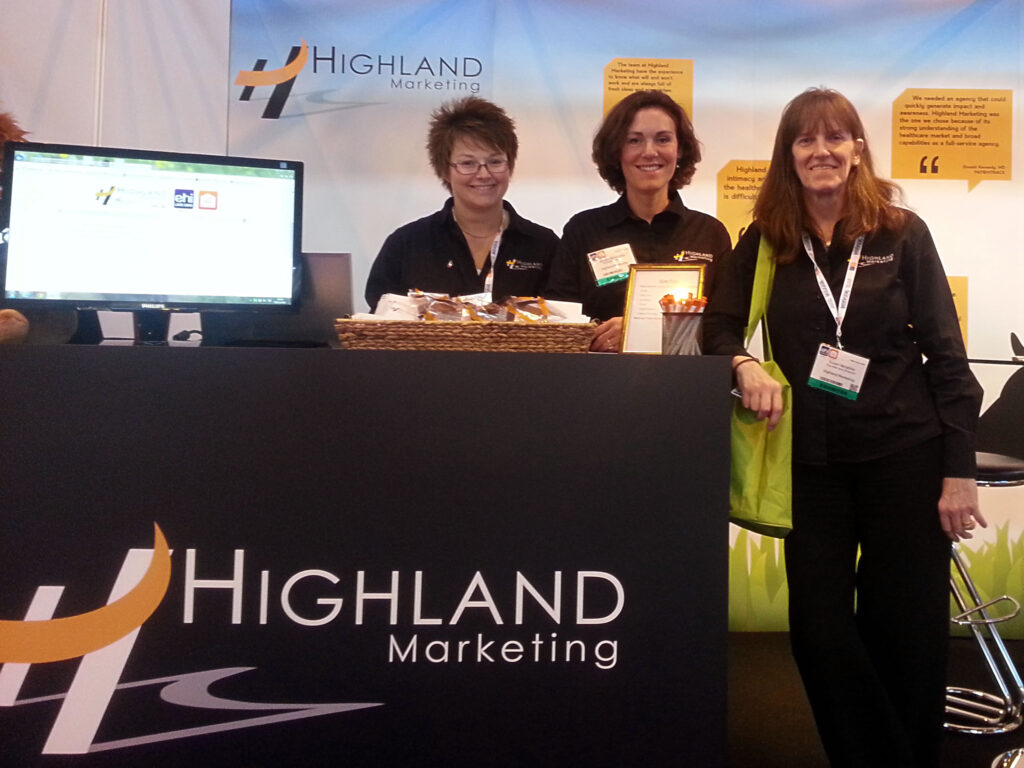At a time when marketing budgets are being squeezed, it is a difficult time for exhibition organisers to convince organisations to invest in industry events. This year’s EHI Live is certainly bucking the trend that industry exhibitions are a dying breed.
On arriving at Birmingham NEC I could sense a buzz of enthusiasm around the exhibition hall. Was this optimism based on a new ‘open marketplace’ within healthcare, or the impact of SMEs driving innovation throughout the industry, or is it that exhibitions are finally evolving to create a new type of experience for delegates and exhibitors to collaborate and share best practice?
Whatever the reason, you could sense that exhibitors meant business. Clearly the diverse organisations, ranging from providers of mobile solutions to integrated services through to clinical portals, invested in different ways to grab the attention of delegates. Some of my personal favourites were EMIS’ coffee bar from the back of a VW Campervan, Microsoft’s 3D modelling and Cayder’s pinball machine.
It can be the simplest promotional ideas that work well; whilst manning the Highland Marketing stand I was constantly approached by delegates wanting to sample our infamous ‘cow pat’ cookies. Home made by Gregor, our business support manager, they tasted absolutely delicious (I may have had more than one…)
I believe the key to creating successful exhibitions is creating good content through speakers and innovating the way that content is delivered. Overall, there were nearly 100 different sessions available to attend over the two days. What is interesting is that just over 27% of these were attributed to the main conference, with the remaining made up of smaller theatres, programmes, networks and conferences. This suggests that some of the more niche areas of healthcare IT are rising, and rapidly.
For example, the Open Source Skunkworks, now in its third year at EHI Live, “was created for open source SMEs to collaboratively deliver a high visibility presence at major events”. This has no doubt grown with the focus on open source from NHS England, but it shows that large exhibitions like this can deliver content for a variety of audiences and not just centre on the main conference sessions.
A stand out seminar for me would have to be clinical informatics advisor at NHS England (proud nurse) Anne Cooper’s talk on how to involve nurses in system design. Her inspiring words on the hard work of the frontline staff and emotional video on the importance of nurses touched everyone in the room.
On a more strategic level, it was informative to listen to presentations from Health and Social Care Information Centre chair Kingsley Manning on ‘Information for Life’ and national director for patients information at NHS England, Tim Kelsey’s talk ‘Transparency: unleashing the power of the people’.
Manning described the wide spread scepticism of technology in healthcare and said: “People are very happy to provide information providing they can see a point to it.” He continued: “We are struggling to break down the technical and cultural barriers of sharing information across silos of care.” Listening to this session it was apparent that the diverse range of exhibitors may have solutions that address this very issue.
In Tim Kelsey’s session, the discussion focused on the development of a safe, open culture of data sharing. Kelsey said: “Openness will make our NHS sustainable for our children”. He explained that: “Transparency is a way in which we can save lives.” This links back to the wider issues in the NHS with Kelsey highlighting the latest initiatives that will put better, more accurate data in the hands of clinicians.
Our team at Highland Marketing streamed the key announcements from the exhibition through a liveblog, of which there were many. With delegate numbers up by 40% on last year, this provided a new way to get the important real time information to those at the exhibition, and those that could not attend.
As day two drew to a close, I reflected on what had been a busy couple of days. With an array of speaker sessions and networking opportunities available, the old age model of attracting a few key speakers is all but gone. Delegates want variety and that is certainly what they got.


